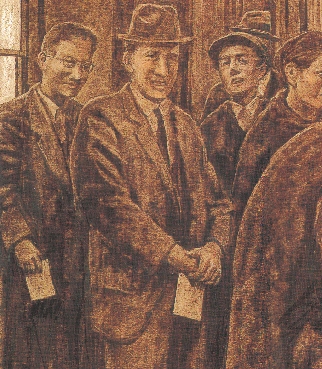I said to my father, “If we don’t help them, won’t they die?”
With the entire family in agreement, I could tell a huge weight was lifted off my father’s shoulders. His voice was firm as he told us, “I will start helping these people.”
Outside, the crowd went quiet as my father spoke, with Borislav translating.
“I will issue visas to each and every one of you to the last. So, please wait patiently.”
The crowd stood frozen for a second. Then the refugees burst into cheers. Grownups embraced each other, and some reached to the sky. Fathers and mothers hugged their children. I was especially glad for the children.
My father opened the garage door and the crowd tried to rush in. To keep order, Borislav handed out cards with numbers. My father wrote out each visa by hand. After he finished each one, he looked into the eyes of the person receiving the visa and said, “Good luck.”
Refugees camped out at our favorite park, waiting to see my father. I was finally able to go outside.
Chiaki and I played with the other children in our toy car. They pushed as we rode, and they rode as we pushed.

We chased each other around the big trees. We did not speak the same language, but that didn’t stop us.
For about a month, there was always a line leading to the garage. Every day, from early in the morning till late at night, my father tried to write three hundred visas. He watered down the ink to make it last. Gudje and a young Jewish man helped out by stamping my father’s name on the visas.
My mother offered to help write the visas, but my father insisted he be the only